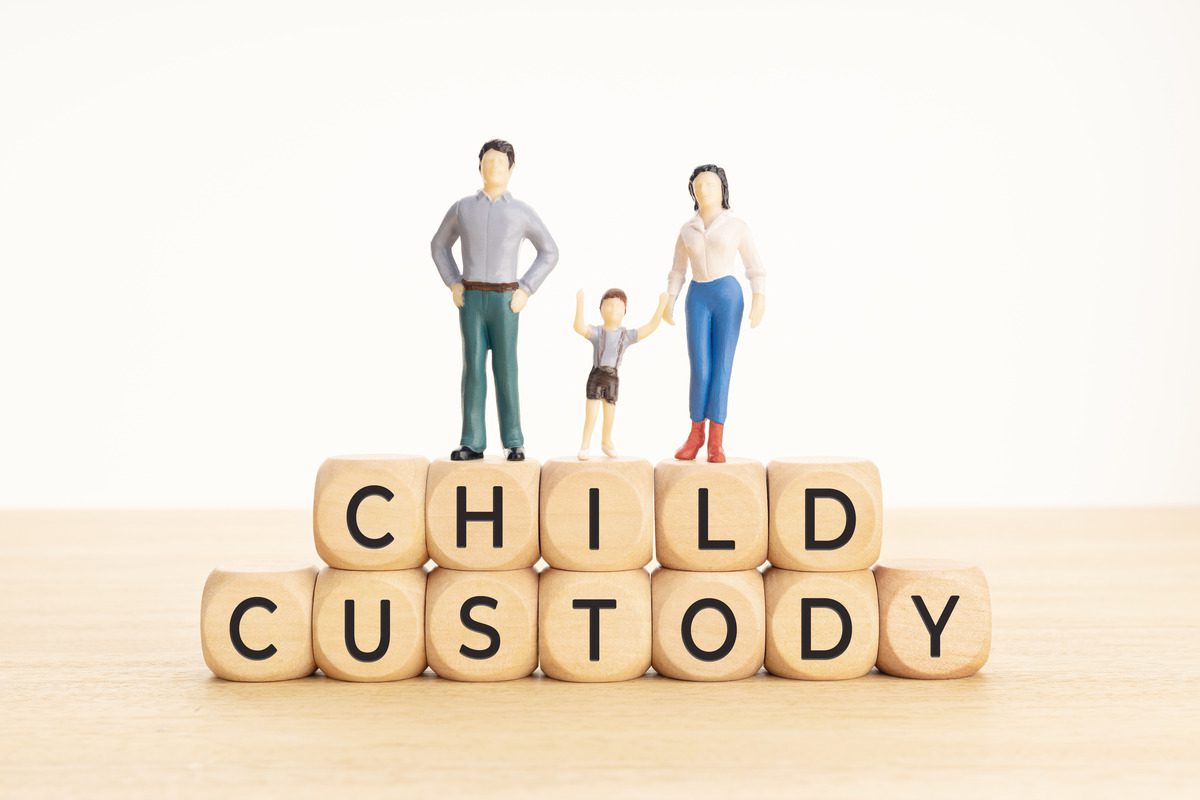Guardianship vs Custody: Which One Do You Need?
Table of Contents
- Introduction
- What Is Guardianship?
- What Is Custody?
- Key Differences Between Guardianship and Custody
- Overlapping Scenarios
- Why Do You Need Guardianship or Custody?
- Frequently Asked Questions
- Which Option Is Right for You?
- Why Choose Tess House Law for Your Family Law Needs?
- Call to Action
What Is Guardianship?
Guardianship is a legal relationship established when someone other than the child’s parent is granted the authority to make decisions about the child’s welfare. This arrangement is often used when a parent is unable to care for their child due to reasons such as:
- Serious illness or incapacity
- Long-term absence or relocation
- Death

A guardian takes responsibility for the child’s well-being, including decisions about education, medical care, and living arrangements. Guardianship can be temporary or permanent, depending on the circumstances and the court’s decision.
In some cases, guardianship may extend beyond caring for the child’s daily needs. For instance, if a child inherits significant assets or property, the guardian may also manage these financial matters. Guardianship ensures that someone trustworthy and capable oversees the child’s personal and economic well-being.
Types of Guardianship
- Temporary Guardianship: A short-term arrangement often used in emergencies or during specific circumstances like hospitalization or travel.
- Permanent Guardianship: A long-term solution typically established when the child’s parents cannot resume their parental responsibilities.
- Legal Guardianship: Formalized through the court, granting the guardian full decision-making authority over the child.
- Standby Guardianship: Allows parents to designate a guardian in advance, ensuring a smooth transition if they can no longer care for the child.
What Is Custody?

- Legal Custody: The authority to make significant decisions about the child’s upbringing, such as education, religion, and healthcare.
- Physical Custody: Determines where the child lives and who is responsible for their daily care.
Sole Custody vs. Joint Custody
- Sole Custody: One parent has exclusive rights to make decisions and care for the child. The non-custodial parent may still have visitation rights, but their involvement in decision-making is limited.
- Joint Custody: Both parents share responsibilities and decision-making. This arrangement encourages collaboration and allows the child to maintain strong relationships with both parents.
Factors Affecting Custody Decisions
Courts evaluate various factors when determining custody arrangements. These include:
- The child’s age, health, and emotional needs
- Each parent’s ability to provide a stable and nurturing environment
- The child’s established routine, including school and community connections
- The willingness of each parent to foster a relationship with the other parent
- Any history of abuse, neglect, or substance misuse
Key Differences Between Guardianship and Custody
While both guardianship and custody involve caring for a child, there are significant differences:
- Relationship to the Child: Custody is typically granted to biological or adoptive parents, whereas guardianship is often given to non-parents, such as grandparents or close family friends.
- Duration: Custody is generally a long-term arrangement, often until the child turns 18. Guardianship can be temporary or permanent, depending on the circumstances.
- Scope of Responsibility: Guardianship can extend to managing a child’s finances and other legal matters, whereas custody primarily focuses on physical and legal decision-making rights.
- Reason for Appointment: Guardianship is usually established when parents cannot fulfill their role, while custody is often a consideration during parental disputes or separation.
Overlapping Scenarios
Why Do You Need Guardianship or Custody?

For the Child’s Best Interest
Legal Recognition of Responsibility
Protection in Emergencies
Resolution of Parental Disputes
Long-Term Planning and Stability
Financial and Educational Support
Advocacy for the Child
Guardians and custodial parents advocate for the child, representing their needs and interests in various situations. This includes interacting with schools, healthcare providers, and other institutions. Legal recognition of this role empowers guardians and custodial parents to make informed decisions prioritizing the child’s welfare.
Frequently Asked Questions

1. When Should You Consider Guardianship?
2. Can Guardianship Be Revoked?
Yes, guardianship can be revoked under certain conditions. If the parent’s situation improves—such as recovering from illness or resolving financial difficulties—they can petition the court to terminate the guardianship. Additionally, if the guardian fails to act in the child’s best interest, the court may intervene and appoint a new guardian.
3. What Factors Does the Court Consider When Granting Custody?
In custody cases, the court’s primary concern is the child’s best interest. Factors include:
- The child’s age and needs
- Each parent’s ability to provide a stable home
- The relationship between the child and each parent
- The parent’s willingness to cooperate
4. How Does Guardianship Impact Parental Rights?
Guardianship does not permanently terminate parental rights. Parents may still have a say in significant decisions, depending on the terms set by the court. However, the guardian has primary decision-making authority during the guardianship period. Parents and guardians sometimes work collaboratively to ensure the child’s well-being.
5. What Legal Steps Are Involved in Establishing Guardianship or Custody?
Establishing guardianship or custody involves several legal steps:
- Petition Filing: The interested party files a petition with the court.
- Background Checks: The court may require background checks for guardianship.
- Court Hearing: Both parties present their case to a judge, who evaluates the child’s best interest.
- Decision: The court issues an order outlining the terms of guardianship or custody.
Which Option Is Right for You?
Deciding between guardianship and custody depends on your unique circumstances. Here are some scenarios to consider:
- Guardianship may be the best option if you are a grandparent or close family member seeking to care for a child temporarily.
- If you are a parent going through a divorce or separation, you must address custody arrangements to determine who is responsible for your child’s upbringing.
- If the child’s parents are deceased, guardianship can provide long-term stability.
Why Choose Tess House Law for Your Family Law Needs?

- Personalized guidance tailored to your situation
- Expertise in guardianship and custody laws
- Compassionate and dedicated support

